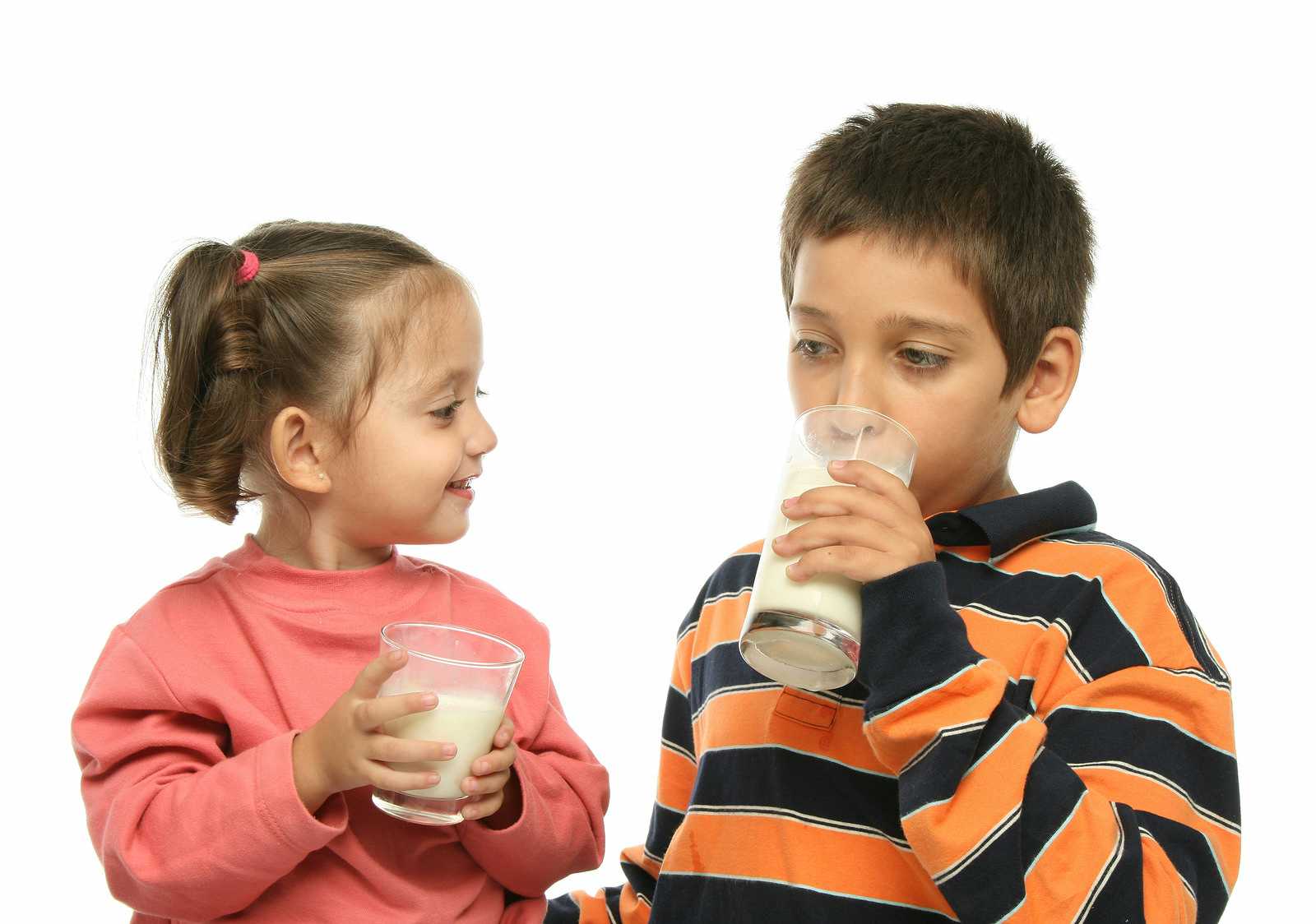
Nearly one child in five in the US is obese, and pediatricians are justifiably concerned. Heavy kids may develop health problems such as type 2 diabetes or even non-alcoholic fatty liver disease. They also may become heavy adults. Childhood obesity is hard to treat (Journal of Pediatric Endocrinology & Metabolism, Feb. 18, 2020). Consequently, pediatricians often recommend that children more than two years old drink reduced fat milk, either 2 percent or skim milk, to reduce the risk of weight gain. Because lower fat milk has fewer calories, the theory is that switching to skim milk would limit calorie consumption and lead to better weight control.
The Milky Way Study Does Not Support Skim Milk for Healthier Children:
An Australian study suggests that switching to skim milk is not necessary (American Journal of Clinical Nutrition, Dec. 2021). In this randomized double-blind trial, dubbed the Milky Way, researchers enrolled 49 youngsters between 4 and 6 years old. They provided the youngsters with whole milk or low-fat dairy products for three months. Even though whole milk has more fat and more calories, children consuming it did not gain weight or have any changes in their blood lipids or serum glucose.
Does Drinking Skim Milk Keep Kids Slim?
The Milky Way study was not the first to examine the value of skim milk for weight control. It was, however, the first to use a good clinical trial protocol. Earlier, Canadian researchers conducted a meta-analysis on 28 studies (American Journal of Clinical Nutrition, Feb. 2020). In 18 of the trials, the results did not support the recommendation. In other words, kids who drank full-fat cow’s milk were less likely to be overweight than those who drank skim milk. The other 10 studies found no association either way. All of these studies just looked at what children were consuming rather than assigning them randomly to whole or skim milk.
The scientists concluded:
“Although no clinical trials were identified, existing observational research suggests that consumption of whole milk compared with reduced-fat milk does not adversely affect body weight or body composition among children and adolescents. To the contrary, higher milk fat consumption appears to be associated with lower odds of childhood overweight or obesity.”
How Did Nutrition Experts Decide to Recommend Reduced Fat Milk for Kids?
An editorial in the same issue of the American Journal of Clinical Nutrition points out that the USDA first recommended reduced fat milk instead of whole milk for school lunches in 1985. At the time, nutrition experts had focused on fat as a problem. They knew that heavy consumption of saturated fat (and, may we add, trans-fat) could raise cholesterol levels.
However, as Dr. Ebbeling points out in the editorial,
“Whole milk contains a complex mixture of bioactive fatty acids, with saturated types comprising the largest proportion at ∼65%. When compared with isocaloric substitution of carbohydrate, certain SFAs in milk [myristic acid (14:0), palmitic acid (16:0), stearic acid (18:0)] increase LDL cholesterol. However, this increase has been attributed to large, buoyant particles that are less atherogenic than small, dense particles, is accompanied by an increase in cardioprotective HDL cholesterol, and thus may not elevate the overall risk of CVD.”
She acknowledges that the current data available to nutrition scientists does not support a recommendation of either whole or skim milk for youngsters.
Instead, she urges her colleagues to do more and better studies:
“Long-term prospective cohort studies, rigorous randomized controlled trials, and meticulous mechanistic investigations are needed to inform future public health and clinical practice guidelines. Such research warrants priority given the frequency of milk consumption and prevalence of childhood obesity.”
We still need scientists to follow through on Dr. Ebbeling’s suggestion. The Milky Way is an excellent start, but three months falls far short of a long-term assessment.
Citations
- Nicholl A et al, "Whole-fat dairy products do not adversely affect adiposity or cardiometabolic risk factors in children in the Milky Way Study: a double-blind randomized controlled pilot study." American Journal of Clinical Nutrition, Dec. 2021. https://doi.org/10.1093/ajcn/nqab288
- Shoemaker AH et al, "Trends in pediatric obesity management, a survey from the Pediatric Endocrine Society Obesity Committee." Journal of Pediatric Endocrinology & Metabolism, Feb. 18, 2020. DOI: 10.1515/jpem-2019-0546
- Vanderhout SM et al, "Whole milk compared with reduced-fat milk and childhood overweight: a systematic review and meta-analysis." American Journal of Clinical Nutrition, Feb. 2020. https://doi.org/10.1093/ajcn/nqz276
- Ebbeling CB, "Confusion at the milk cooler: Opportunity to bolster the evidence base for preventive nutrition." American Journal of Clinical Nutrition, Feb. 2020. https://doi-org.libproxy.lib.unc.edu/10.1093/ajcn/nqz319

